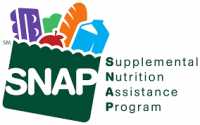
28 Jun Who Loses Benefits With Work Requirements for SNAP Benefits?
MedicalResearch.com Interview with:

Dr. Brantley
Erin Brantley, PhD, MPH
Senior Research Associate
Department of Health Policy and Management
Milken Institute School of Public Health
Preferred pronouns: she/her/hers
MedicalResearch.com: What is the background for this study? What are the main findings?
Response: We looked at what happened when work requirements for the Supplemental Nutrition Assistance Program Participation, or SNAP, were turned on in many places after the Great Recession.
We found large drops in participation in SNAP benefits due to work requirements, and that black recipients were more likely to lose benefits than white recipients. We think this is driven by the fact that black workers face higher unemployment rates than white workers, and work requirement policies do not take this into account.
We also found that some people who report having disabilities lost benefits, even though the intent of work requirements is that they apply to people without disabilities.
MedicalResearch.com: What should readers take away from your report?
 Response: Other research has found that work requirements have little to no impact on whether people are working. This study and others have found work requirements cause large drops in the number of poor and low-income people receiving critical benefits, and our study adds that the burden falls disproportionately on black recipients.
Response: Other research has found that work requirements have little to no impact on whether people are working. This study and others have found work requirements cause large drops in the number of poor and low-income people receiving critical benefits, and our study adds that the burden falls disproportionately on black recipients.
Even though there are exemptions for disability under SNAP work requirement policies, some people with disabilities lose benefits. People with a disability might find it difficult to navigate the process to get an exemption, which can include getting a health professional to fill out paperwork. Other people might not qualify for an exemption in their state, despite having health challenges that make it more difficult to work.
MedicalResearch.com: What recommendations do you have for future research as a result of this work?
Response: Survey research or interviews with SNAP recipients who become subject to work requirements could help us understand better how some people with disabilities lose benefits.
MedicalResearch.com: Is there anything else you would like to add?
Response: Work requirements for SNAP are paused right now for the duration of the federal public health emergency due to Covid-19, but it is unclear how long the emergency declaration will last. The administration is seeking to expand work requirements for SNAP by reducing the ability of states to waive work requirements when unemployment is high, but this policy change is being challenged in the courts. Some states are also planning to apply work requirements to Medicaid benefits, although federal court decisions have stopped other states from doing so.
Disclosure statement from the article:
Dr Ku reported contributing to and cosigning amicus briefs to the courts regarding Medicaid work requirements and drafting a comment letter to the US Department of Agriculture regarding final regulations about Supplemental Nutrition Assistance Program work requirements. No other disclosures were reported.
Citation:
Brantley E, Pillai D, Ku L. Association of Work Requirements With Supplemental Nutrition Assistance Program Participation by Race/Ethnicity and Disability Status, 2013-2017. JAMA Netw Open. 2020;3(6):e205824. doi:10.1001/jamanetworkopen.2020.5824
https://jamanetwork.com/journals/jamanetworkopen/fullarticle/2767673
[subscribe]
Last Modified: [last-modified]
The information on MedicalResearch.com is provided for educational purposes only, and is in no way intended to diagnose, cure, or treat any medical or other condition. Always seek the advice of your physician or other qualified health and ask your doctor any questions you may have regarding a medical condition. In addition to all other limitations and disclaimers in this agreement, service provider and its third party providers disclaim any liability or loss in connection with the content provided on this website.
Last Updated on June 28, 2020 by Marie Benz MD FAAD
